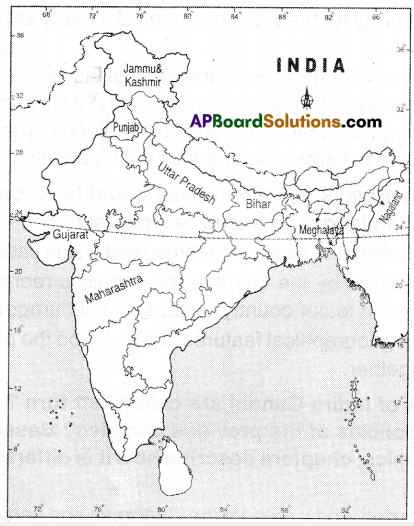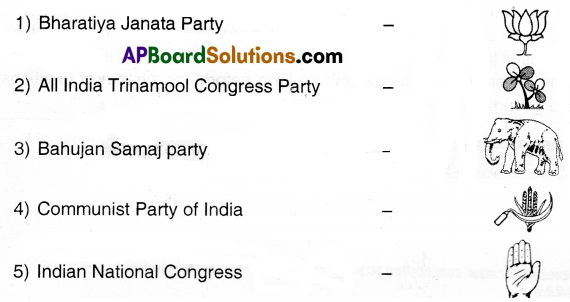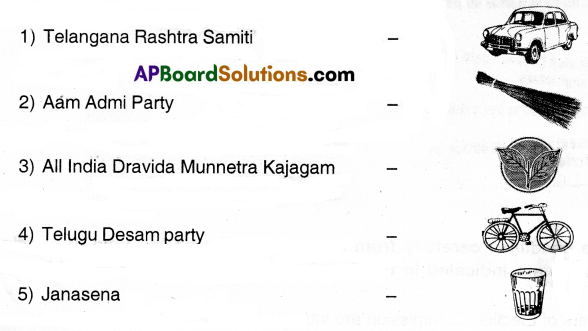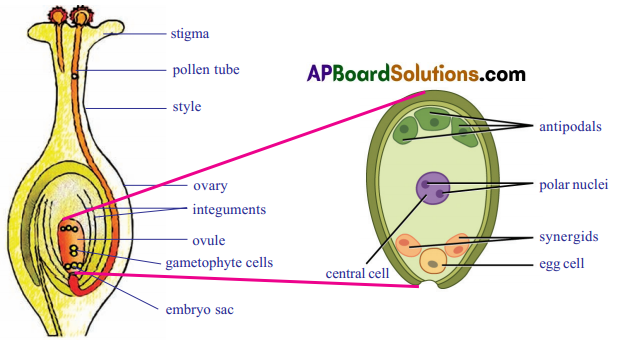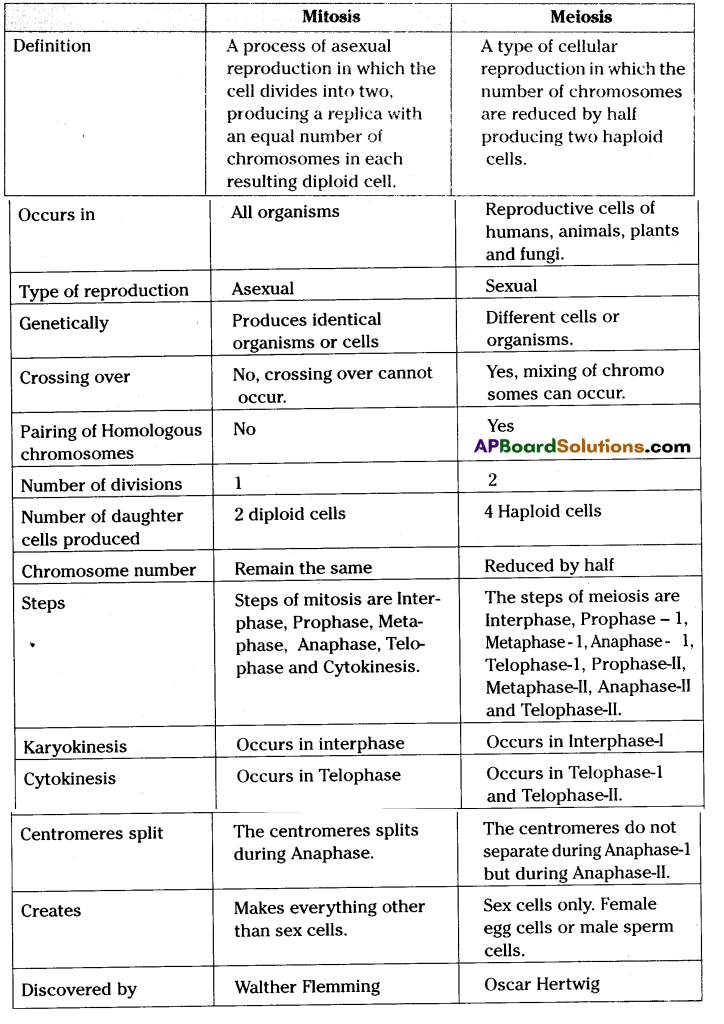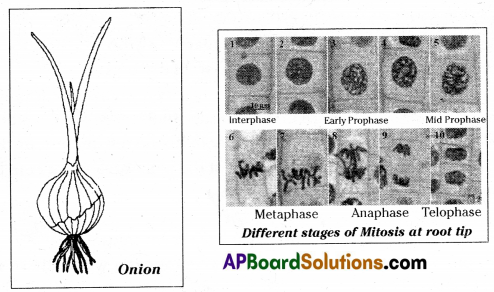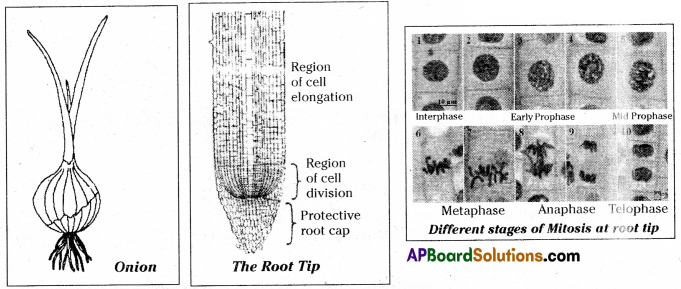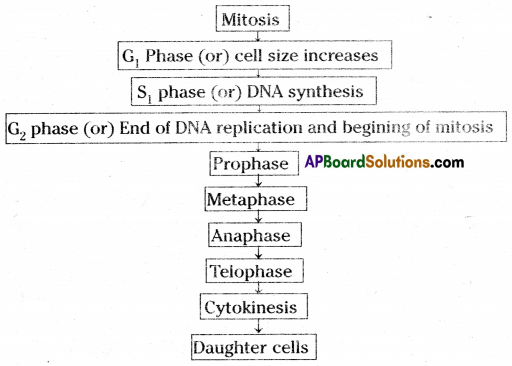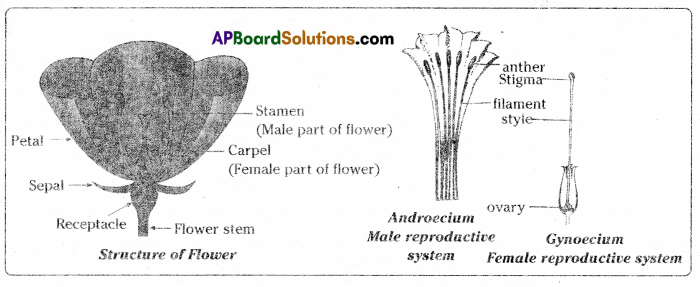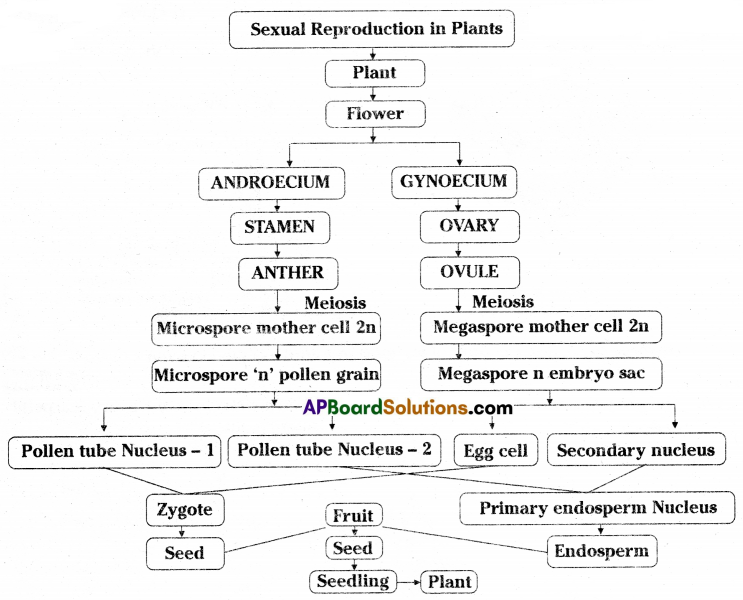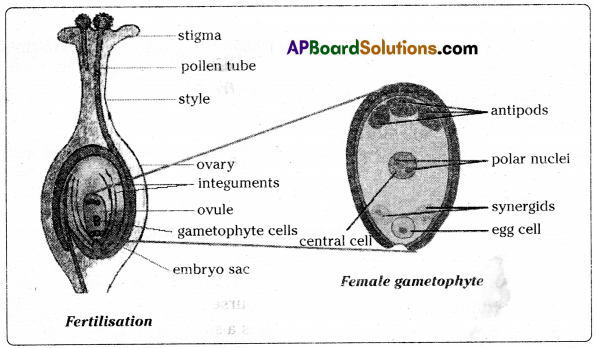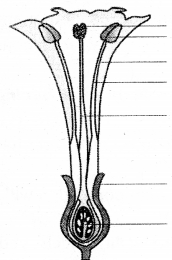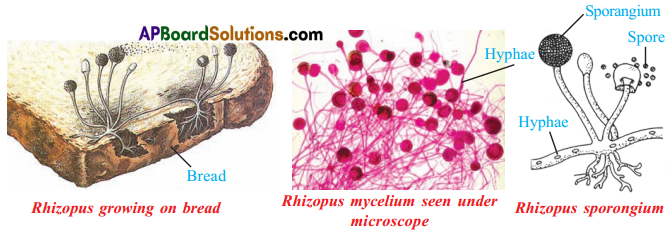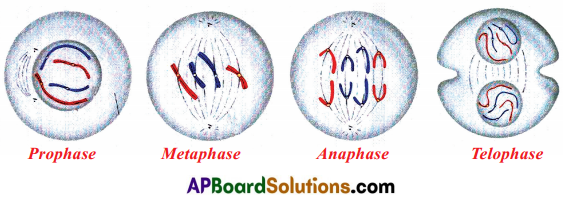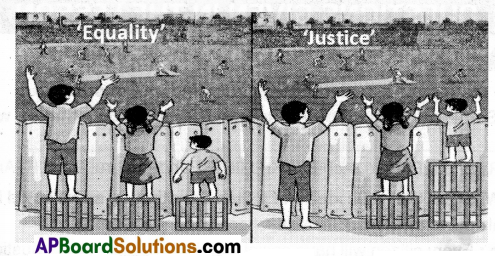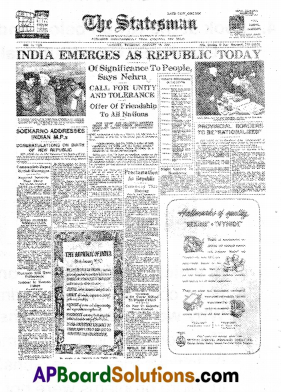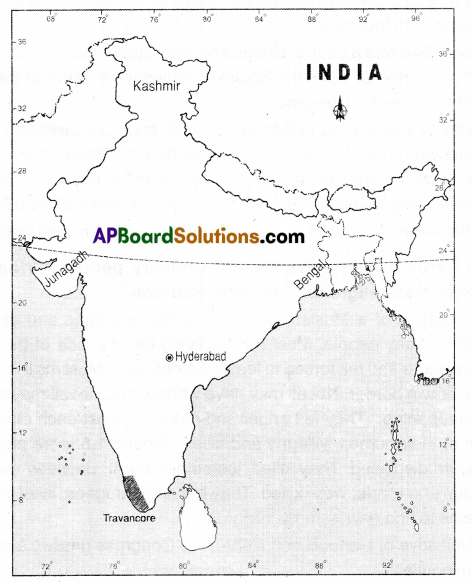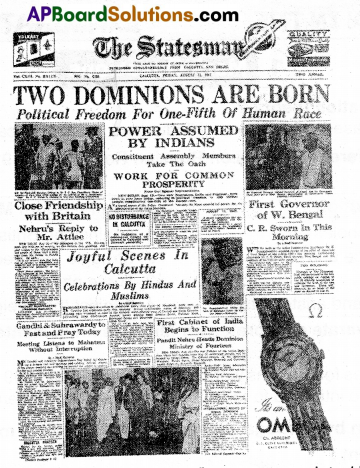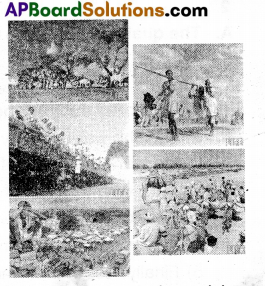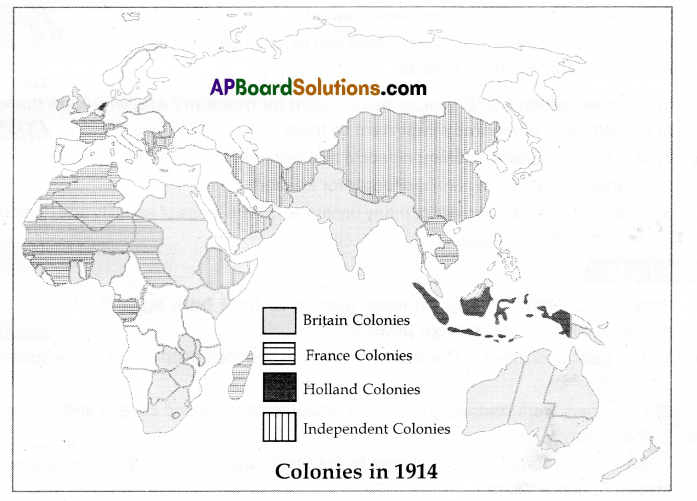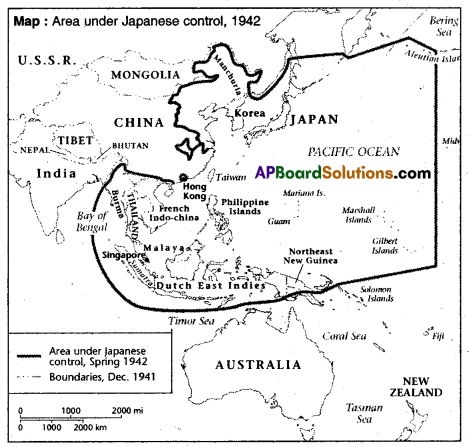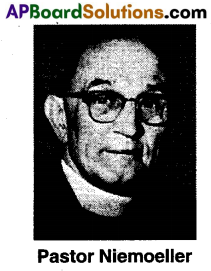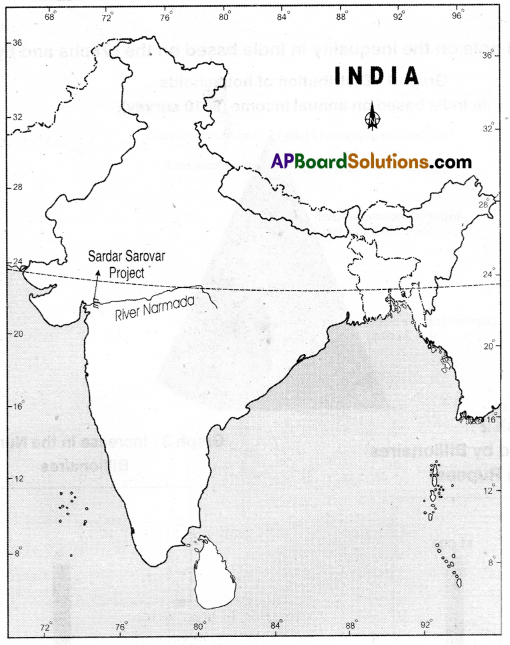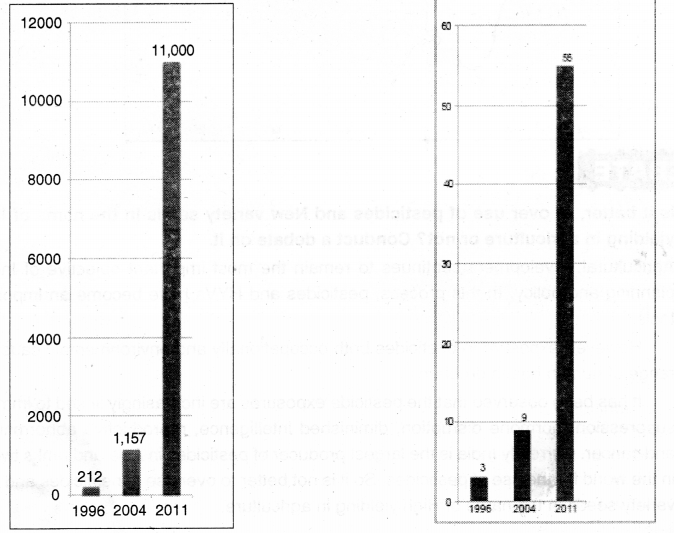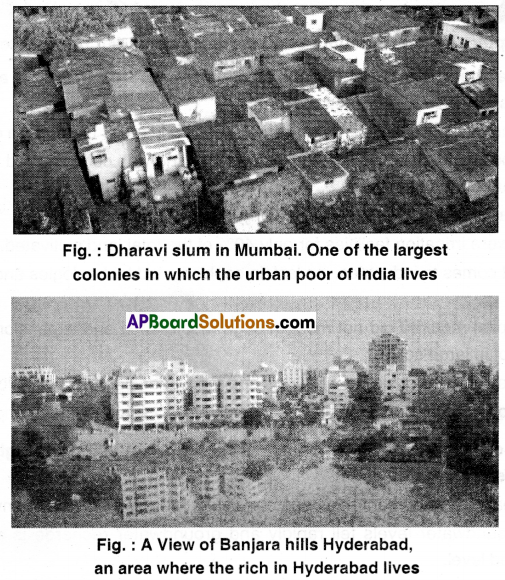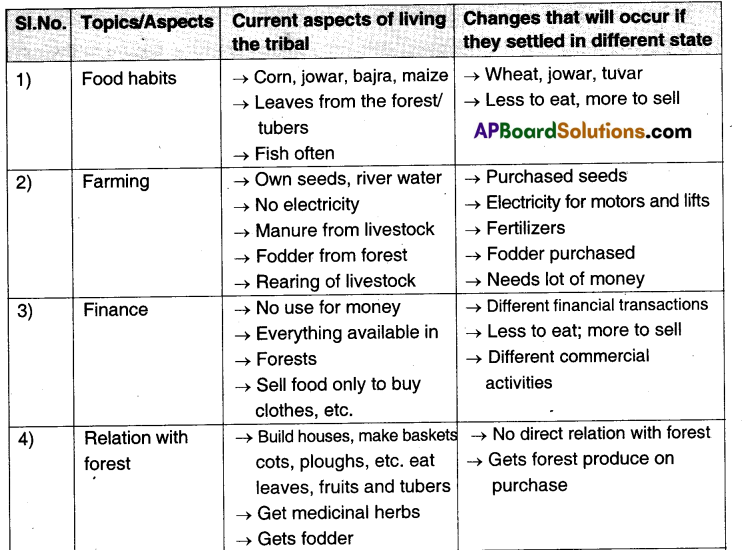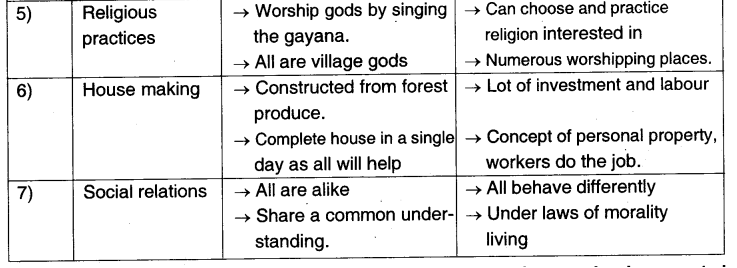These TS 10th Class English Important Questions 8th lesson Human Rights will help the students to improve their time and approach.
TS 10th Class English 8th Lesson Questions and Answers Human Rights
Section – A : Reading Comprehension
(Q.1 – 7)
(A) Read the following passage.
Everyday, I walk a half-mile from my home to the tramcar lines in the morning and from the lines to my home in the evening. The walk is pleasant. The road on either side is flanked by red and green-roofed bungalows, green lawns and gardens. The exercise is good for me, and now and then, I earn something from a little’incident.
One morning, about half-way between my front gate and the tram track, I noticed two little boys playing in the garden of the more modest cottages. They were both very little boys, one was four years old perhaps, the other five. The bigger of the two was a sturdy youngster, very dark, with a mat of coarse hair on his head and coal-black eyes.
He was definitely a little Jamaican – a strong little Jamaican. The other little fellow was smaller, but also sturdy – he was white, with hazel eyes and light-brown hair. Both were dressed in blue shirts and khadi pants. They wore no shoes and their feet were muddy. They were not conscious of my standing there, watching them; they played on.
The game, if it could be called a game, was not elaborate. The little white boy strode imperiously up and down, and every now and then shouted imperiously at his bigger, playmate. The little brown boy shuffled along quietly behind him and did what he was told.

Now answer the following questions. Each question has four choices.
Choose the correct answer and write (A), (B), (C) or (D) in your answer booklet.
Question 1.
How does the speaker feel about his walk ?
(A) Uneasy
(B) Uncomfortable
(C) Interesting
(D) Pleasant
Answer:
(D) Pleasant
Question 2.
What is the exercise mentioned in this passage ?
(A) Aerobics
(B) Running
(C) Walking
(D) Play with children
Answer:
(C) Walking
Question 3.
Who is the speaker of this passage ?
(A) A.L.Hendricks
(B) Abdul Kalam
(C) Wangari Maathai
(D) Satyavathi
Answer:
(A) A.L.Hendricks
Question 4.
What was the little brown boy doing ?
(A) He was watering the plants in the garden.
(B) He was obeying the orders of the white boy.
(C) He was watching the garden.
(D) He was taking care of the white boy.
Answer:
(B) He was obeying the orders of the white boy.
Answer the following questions in two or three sentences each.
Question 5.
How does the writer describe the bigger boy ?
Answer:
The bigger tiger was a sturdy youngster, very dark, with a mat of coarse hair on his head and coal- black eyes.
Question 6.
How does the speaker describe the smaller boy ?
Answer:
The smaller boy was sturdy. He was white, with hazel eyes and light-brown hair.
Question 7.
Describe the apparel of both the boys. What similarities do you find in the apparel of the two boys ?
Answer:
Both the boys were dressed in blue shirts and khaki pants. They wore no shoes.

(B) Read the following passage.
‘Pick up that stick!’ The dark boy picked’ it up. ‘Jump into the flowers!’ The dark boy jumped.
‘Get me some water!’ The dark boy ran inside. The white boy sat down on the lawn.
I was amazed. Here before my eyes, a white baby, for they were little more than babies,-was imposing his will upon a little black boy. And the little black boy submitted. I puzzled within myself as I went down the road. Could it be that the little dark boy was the son of a servant in the home and therefore had to do the white boy’s bidding? No. They were obviously dressed alike, the little dark boy was of equal class with his playmate. No. They were playmates, the little dark boy was a neighbour’s child. I was sure of that. Then how was it that he obeyed so faithfully the white boy’s orders?
Was it that even as a boy he sensed that in his own country he would be at the white man’s beck and call? Could he, at this age, divine a difference between himself and the white boy? And did the little white youngster, so young, such a baby, realize that he would grow to dominate the black man? Was there an indefinable quality in the white man that enabled his baby, smaller and younger than his playmate, to make him his slave?
I could find no answer. I could not bring myself to believe such a thing, and yet, with my own eyes I had seen a little dark boy take orders from a little white boy – a little white boy, obviously his social equal, and younger and smaller. Were we, as a race, really inferior? So inferior that even in our infancy we realised our deficiencies, and accepted a position as the white man’s servant ?
For a whole day I puzzled over this problem. For a whole day my faith in my people was shaken. When I passed by that afternoon the little boys were not there. That evening I thought deeply on the subject.
Now answer the following questions. Each question has four choices.
Choose the correct answer and write (A), (B), (C) or (D) in your answer booklet.
Question 1.
“That evening I thought deeply on the subject.” Here the subject was
(A) the black boy’s submitting the white boy’s orders.
(B) the white boy’s submitting the black boy’s orders.
(C) the little boys were not there.
(D) the narrator’s faith.
Answer:
(A) the black boy’s submitting the white boy’s orders.
Question 2.
What do you understand by the expression, “For a whole day my faith in my people was shaken ?”
(A) his people made the narrator shake.
(B) he lost faith in his people.
(C) the narrator couldn’t approve the act of black boy’s obeying the white boy.
(D) the narrator couldn’t approve the act of white’s boy’s obeying the black boy.
Answer:
(C) the narrator couldn’t approve the act of black boy’s obeying the white boy.
Question 3.
Which of the following words given in the passage means, “to force someone to accept what he/she says”?
(A) amaze
(B) impose
(C) dominate
(D) submit
Answer:
(B) impose
Question 4.
The white boy asked the dark boy to pick up the stick because
(A) he wanted to beat the dark boy with it.
(B) the dark boy was the white boy’s servant.
(C) I was a part of their game
(D) the dark boy felt that he was inferior to the white boy.
Answer:
(C) I was a part of their game
Answer the following questions in two or three sentences each.
Question 5.
“For a whole- day I puzzled over this problem.”— Why did he puzzle for a whole day?
Answer:
The writer had seen the the black boy obeying the order of the small white boy. He couldn’t bear the idea of the whites dominating the blacks. So the puzzled for the whole day.
Question 6.
‘I was sure of that’ What does ‘that’ refer to? Why do you think he was sure of that?
Answer:
He was sure that the little black boy was a neighbour’s child. He came to the conclusion as both th children dressed alike. He realized that the little dark boy was of equal class with his playmate.
Question 7.
In the above text the narrator was asking himself some questions. What was his intention behind his asking himself those questions?
Answer:
The narrator was of the opinion that the black people were equal to the whites. But when he saw the black boy’s obeying the white boy’s orders, he was amazed. He questioned himself if there was still racial discrimination in his country.

(C) Read the following passage.
‘Pick up that stick!’ The dark boy picked it up. ‘Jump into the flowers!’ The dark boy jumped.
‘Get me some water!’ The dark boy ran inside. The white boy sat down on the lawn.
I was amazed. Here before my eyes, a white baby, for they were little more than babies, was imposing his will upon a little black boy. And the little black boy submitted. I puzzled within myself as I went down the road. Could it be that the little dark boy was the son of a servant in the home and therefore had to do the white boy’s bidding? No. They were obviously dressed alike, the little dark boy was of equal class with his playmate. No. They were playmates, the little dark boy was a neighbour’s child. I was sure of that. Then how was it that he obeyed so faithfully the white boy’s orders?
Now, answer the following questions. Each question has four choices.
Choose the correct answer and write (A), (B), (C) or (D) in your answer booklet.
Question 1.
‘Pick up that stick!’ This is
(A) an Imperative sentence
(B) a Declarative or Assertive sentence
(C) an Exclamatery sentence
(D) an Interrogatory sentence
Answer:
(A) an Imperative sentence
Question 2.
The writer of these lines (or this essay) is
(A) Sudha Murthy
(B) A.L.Hendricks
(C) Smt.P.Satyavati
(D) Gabriel Okara
Answer:
(B) A.L.Hendricks
Question 3.
The dark boy and the white boy were
(A) Quarrelling
(B) teasing each other
(C) playing hide and seek
(D) playing master and servant
Answer:
(D) playing master and servant
Question 4.
“I was sure of that” – That here refers to
(A) ‘that’ refers to the game
(B) the fact that the dark boy was the son of the servant in the white boy’s family
(C) the intimacy between the two boys
(D) the little black/dark boy was a neighbour’s child.
Answer:
(D) the little black/dark boy was a neighbour’s child.
Answer the following questions in two or three sentences each.
Question 5.
Why was the narrator amazed ?
Answer:
Because he wondered why the elder black boy was obeying the commands of the younger white boy. The white one was imposing his will upon a little black boy. Moreover, the little black boy was docile and submissive.
Question 6.
What were the boys doing ? What was the author’s doubt ?
Answer:
The boys were enjoying fun and pleasure if their playfulness can be termed as a game. The author had many apprehensions and doubts about the boy’s relationships with each other. But it was only meant for entertainment.
Question 7.
Why was such a game was being played by small children ?
Answer:
Some time later the role played by the white boy would be given to the black boy and vice-versa. They would change their roles and thereby understand how the slaves suffered in America due to the irrational behaviour of the white.

(D) Read the following passage.
Was it that even as a boy he sensed that in his own country he would be at the white man’s beck and call? Could he, at his age, divine a difference between himself and the white boy? And did the little white youngster, so young, such a baby, realize that he would grow to dominate the black man? Was there an indefinable quality in the white man that enabled his baby, smaller and younger than his play mate, to make him his slave? I could find no answer.
I could not bring myself to believe such a thing, and yet, with my own eyes I had seen a little dark boy take orders from a little white boy — a little white boy, obviously his social equal, and younger and smaller. Were we, as a race, really inferior? So inferior that even in our infancy we realised our deficiencies, and accepted a position as the white man’s servant?
For a whole day I puzzled over this problem. For a whole day my faith in my people was shaken. When I passed by that afternoon the little boys were not there. That evening I thought deeply on the subject.
Now, answer the following questions. Each question has four choices.
Choose the correct answer and write (A), (B), (C) or (D) in your answer booklet.
Question 1.
Was it that even as a boy he sensed that in his own country he would be at the white man’s beck and call ? Here beck and call means ?
(A) always having to be ready to obey orders
(B) submissive
(C) docile
(D) obsequious
Answer:
(A) always having to be ready to obey orders
Question 2.
For a whole day the author was puzzled because
(A) the boy who is black in colour was trained to be a slave
(B) of the segregation of the blacks
(C) he felt that right from such a young age the children are showed racial discrimina¬tion
(D) the white are enjoying the supremacy
Answer:
(C) he felt that right from such a young age the children are showed racial discrimina¬tion
Question 3.
Was there an indefinable quality in the white man ? The word indefinable is
(A) verb
(B) an adjective
(C) an adverb
(D) a preposition
Answer:
(B) an adjective
Question 4.
The antonym of the word inferior is
(A) better
(B) senior
(C) super
(D) superior
Answer:
(D) superior
Answer the following questions in two or three sentences each.
Question 5.
Why was the black boy at the beck and call of the white boy ?
Answer:
The writer wonders whether the black boy sensed that in his own country he would be at the white man’s beck and call. But the fact is that, it was only a game the children played, viz-Master and slave, funnily reversing their role each on the next day.
Question 6.
Could the author cum narrator find an answer to the fact why the dark boy was a slave?
Answer:
Yes, on the second- day the boys changed their roles. The writer observed the dark boy acting as the boss and the white boy obeying his orders like a servant. Then he realised the fact that they were playing a game and found the answer. He also remembered that it was the game he used to play in his childhood.
Question 7.
“I puzzled within myself”, says the narrator. What conclusion did he come to after this puzzling thought ?
Answer:
The narrator felt that the black might be the son of servant at their home or from the neighbourhood. He also felt that from such a tender and young age the children are trained to understand class/colour distinction /discrimation’ and segregation. As a conseque of it the whites develop a sense of superiority supremacy and imperious nature.

(E) Read the following passage.
For a whole day I puzzled over this problem. For a whole day my faith in my people was shaken. When I passed by that afternoon the little boys were no there. That evening I thought deeply or the subject.
The next morning the boys were there again, and a man was standing at the gate watching them. I stopped and looked, just to see what the white boy was making his little servant do. To my utter astonishment the little dark boy was striding imperiously up and down the lawn, while the white youngster walked abjectly behind him.
‘Get me a banana !’ The little boy ran into the house and reappeared shortly with a banana. ‘Peel it for me !’ the little white boy peeled the banana and handed it to his dark master.
I saw it now. It was indeed a game, a game I had played as a child. Each boy took it in turn every alternate day to be the boss, the other the slave. It had been great fun to me as a youngster. I smiled as I remembered. I looked at the man standing by the gate. He was a white man. I remembered what I had thought yesterday. He, no doubt, I thought to myself, was wondering if the black race is superior to the white. I laughed gently to myself.
“How silly grown-ups are, howl clever we are, how wonderfully able we are, to impute deep motives to childish actions ! This man”, I said to myself, “will; puzzle all day on whether the blacks will eventually rise and rule the world because he thinks he sees a little black boy realizing at a tender age his superiority over the white. I will save him from his puzzle. I will explain it to him”. I went, across to him.
Now answer the following questions. Each question has four choices.
Choose the correct answer and write (A), (B), (C) or (D) in your answer booklet.
Question 1.
What was the faith of the writer in his people ?
(A) His people would not accept to be a white man’s servant.
(B) His people would be ready to work as servants of the white people.
(C) His people do not work as servants in any business.
(D) His people do not like to work at all.
Answer:
(A) His people would not accept to be a white man’s servant.
Question 2.
What was the problem that puzzled the writer ?
(A) The problem of unemployment
(B) The problem of the playgrounds in Jamaica
(C) The problem of the racial discrimination
(D) The problem of children playing in gardens
Answer:
(C) The problem of the racial discrimination
Question 3.
Which of the titles would you like to select as the name of the game played by the two children ?
(A) The thief and the police
(B) The owner and the gardener
(C) The boss and the slave
(D) The king and the soldier
Answer:
(C) The boss and the slave
Question 4.
Who was the white man standing at the gate ?
(A) The gardener
(B) A stranger
(C) The neighbour of the house
(D) The father of the two children
Answer:
(D) The father of the two children
Answer the following questions in two or three sentences each.
Question 5.
What made the writer astonish the next morning ?
Answer:
Next morning the writer noticed that the little dark boy was striding imperiously up and down the lawn, while the white youngster walked abjectly behind him. This made the writer astonish.
Question 6.
What did the writer expect to see the next morning ?
Answer:
The writer expected to see that the white boy would make the black boy do something as his servant.
Question 7.
What did the writer want to explain to the white man at the gate ?
Answer:
The writer wanted to explain to the white man that it was just a game. The black boy was not ruling over the white boy. All their deeds were just a part of the game.

(F) Read the following passage.
‘Get me a banana!’ The little boy ran into the house and reappeared shortly with a banana. ‘Peel it for me!’ the little white boy peeled the banana and handed it to his dark master
.
I saw it now. It was indeed a game, a game I had played as a child. Each boy took it in turn every alternate day to be the boss, the other the slave. It had been great fun to me as a youngster. I smiled as I remembered. I looked at the man standing by the gate. He was a white man. I remembered what I had thought yesterday. He, no doubt, I thought to myself, was wondering if the black race is superior to the white. I laughed gently to myself.
‘How silly grown-ups are, how clever we are, how wonderfully able we are, to impute deep motives to childish actions! This man/ I said to myself, ‘will puzzle all day on whether the blacks will eventually rise and rule the world because he thinks he sees a little black boy realizing at a tender age his superiority over the white. I will save him from his puzzle. I will explain it to him.’ I went across to him.
‘I know what you’re thinking,’ I said. ‘You’re thinking that may be the black race is superior to the white, because you just saw‘the little dark youngster on the lawn ordering the little white boy around. Don’t think that; it’s a game they play. Alternate days one is the boss, the other the servant. It’s a grand game. I used to play it and may be so did you. Yesterday I saw the little white boy bossing the dark one and I worried all day over the dark boy’s realisation of his inferiority so young in life! We are silly, we grown-ups, aren’t we?’
The man was surprised at my outburst. He looked at me smiling. ‘I know all about the game/ he said ‘The boys are brothers — my sons.’ He pointed to a handsome brown woman on the verandah who had just come out to call in the children ‘That’s my wife’, he said.
Now answer the following questions. Each question has four choices.
Choose the correct answer and write (A), (B), (C) or (D) in your answer booklet.
Question 1.
In the end the narrator felt
(A) anxiety
(B) agony
(C) very happy
(D) worry
Answer:
(C) very happy
Question 2.
The brown woman mentioned in the passage was
(A) the narrator’s wife.
(B) the white man’s wife.
(C) a black man’s wife
(D) a maid servant.
Answer:
(B) the white man’s wife.
Question 3.
Which of the following words given in the passage means, “the reason that makes someone do something” ?
(A) motive
(B) impute
(C) grand
(D) outburst
Answer:
(A) motive
Question 4.
The word ‘you’ in the expression, “I knew what you’re thinking “refers to
(A) the narrator
(B) the white man
(C) the black man
(D) the brown boy
Answer:
(B) the white man
Answer the following questions in two or three sentences each.
Question 5.
“The man was surprised ” Who was the man ? Why was he surprised ?
Answer:
The man was a white man, the two boys’ father. The narrator, without any greetings and self-introduction and without enquiring about the man’s awareness of the game, made his outburst. It made the white man surprised.
Question 6.
“I remembered what I had thought yesterday.” What had the narrator thought the previous day ?
Answer:
The narrator had thought that there was still racial discrimination in his country. He also thought if the blacks were thinking that they were inferior to the whites.
Question 7.
“I know what you’re thinking,” the narrator said. Do you think the other man was thinking in the same way as the narrator imagined ?
Answer:
I don’t think the other man was thinking in the same way as the narrator imagined. The two boys were brothers and none others than his sons. He stood there watching the children’s game. But the narrator misunderstood that he too was wondering in the same way as he had thought the previous day.

(G) Read the following passage. (June 2018)
I saw it now. It was indeed a game, a game I had played as a child. Each boy took it in turn every alternate day to be the boss, the other the slave. It had been great fun to me as a youngster. I smiled as I remembered. I looked at the man standing by the gate. He was a white man.
I remembered what I had thought yesterday. He, no doubt, I thought to myself, was wondering if the black race is superior to the white. I laughed gently to myself. ‘How silly grown-ups are, how clever we are, how wonderfully able we are, to impute deep motives to childish actions! This man,’ I said to myself, ‘will puzzle all day on whether the blacks will eventually rise and rule the world because he thinks he sees a little black boy realizing at a tender age his superiority over the white. I will save him from his puzzle. I will explain it to him. ‘I went across to him.’
‘I know what you’re thinking.’ I said. ‘You’re thinking that may be the black race is superior to the white, because you just saw the little dark youngster on the lawn ordering the little white boy around. Don’t think that; it’s a game they play. Alternate days one is the boss, the other the servant. It’s a grand game. I used to play it and may be so did you. Yesterday I saw the little white boy bossing the dark one and I worried all day over the dark boy’s realisation of his inferiority so young in life ! We are silly, we grown-ups, aren’t we ?’
The man was, surprised at my outburst. He looked at me smiling. ‘I know all about the game/ he said. ‘The boys are brothers— my sons.’ He pointed to a handsome brown woman on the verandah who had just come out to call in the children. ‘That’s my wife’, he said. I smiled. My spirit laughed within me. This is Jamaica, I said in my heart, this is my country — my people. I looked at the white man. He smiled at me. ‘We’ll miss the tram if we don’t hurry,’ he said.
I smiled. My spirit laughed within me. This is Jamaica, I said in my heart, this is my country – my people. I looked at the white man. He smiled at me. ’We’ll miss the tram if we don’t hurry’, he said.
Now answer the following questions. Each question has four choices.
Choose the correct answer and write (A), (B), (C) or (D) in your answer booklet.
Question 1.
According to the author, the white man was
(A) puzzled by the actions of the boys.
(B) angry with the actions of the boys.
(C) not puzzled by the actions of the boys.
(D) laughing by the actions of the boys.
Answer:
(C) not puzzled by the actions of the boys.
Question 2.
The game played by the boys was
(A) fun-filled
(B) meaningless
(C) absurb
(D) foolish
Answer:
(A) fun-filled
Question 3.
In narrator’s view, the black race is
(A) superior to the white race
(B) equal to the white race.
(C) inferior to the white race
(D) dominating
Answer:
(B) equal to the white race.
Question 4.
The given passage is a part of
(A) a description
(B) a conversation
(C) a narration
(D) an interview
Answer:
(C) a narration
Answer the following questions in two or three sentences each.
Question 5.
Why did the Jamaican’s remembrances made him smile ?
Answer:
The narrator saw ‘the master, slave’ roles change. Now he realized it was only a game. It was a great relief. He remembered the game as he too played as a young boy. He smiled as he remembered it, He smiled because he was happy. He smiled at his silly thoughts all the previous day too.
Question 6.
What qualities in grown-ups are mentioned in the given passage ?
Answer:
The grown-ups are clever, wonderfully able and silly to impute deep motives to cniiaisn actions.
Question 7.
Was the Jamaican proud of his country people ? How can you say ?
Answer:
Yes. Because he has seen the peaceful co-existence of the whites and the blacks.

(H) Read the following passage.
‘I know what you’re thinking’, I said. You’re thinking that may be the black race is superior to the white, because you just saw the little dark youngster on the lawn ordering the little white boy around. Don’t think that; it’s a game they play. Alternate days one is the boss, the other the servant. It’s a grand game. I used to play it and may be so did you. Yesterday I saw the little white boy bossing the dark one and I worried all day over the dark’ boy’s realisation of his inferiority, so young in life ! We are silly, we grown-ups, aren’t we’ ?
The man was surprised at my outburst. He looked at me smiling. ‘I know all about the game’, he said. ‘The boys are brothers – my sons’. He pointed to a handsome brown woman on the varandah who had just come out to call in the children. ‘That’s my wife’, he said.
I smiled. My spirit laughed within me. This is Jamaica, I said in my heart, this is my country – my people. I looked at the white man. He smiled at me. ‘We’ll miss the train if we don’t hurry’, he said.
Now answer the following questions. Each question has four choices.
Choose the correct answer and write (A), (B), (C) or (D) in your answer booklet.
Question 1.
What is the nationality of the writer ?
(A) An American
(B) An Englishman
(C) A Jamaican
(D) An Indian
Answer:
(C) A Jamaican
Question 2.
Why did the white man smile at the writer ?
(A) Because the writer was watching the game.
(B) Because the writer was complaining against the black boy.
(C) Because the writer misunderstood the boys and him.
(D) Because the writer was walking very slowly.
Answer:
(C) Because the writer misunderstood the boys and him.
Question 3.
Why was the white man surprised ?
(A) Because of the writer’s outburst
(B) Because of the writer’s interest in the game
(C) Because of the writer’s morning walk
(D) Because of the writer’s innobence
Answer:
(A) Because of the writer’s outburst
Question 4.
Which of the following statements is wrong ?
(A) The two boys are the brothers.
(B) The two boys are the sons of the white man.
(C) The black boy is the boss of the white boy.
(D) The brown woman is the wife of the white man.
Answer:
(C) The black boy is the boss of the white boy.
Answer the following questions in two or three sentences each.
Question 5.
The author misunderstood something. What was it?
Answer:
The writer misunderstood that the white man at the gate was a stranger, but not the father of the two children.
Question 6.
Why did the writer feel that the grown-ups were silly?
Answer:
The writer felt that the grown-ups were silly because he misunderstood the game of the boys as a thing of racial discrimination.
Question 7.
What was the important principle followed in the game played by the two boys?
Answer:
On a day one is the boss and the other is the servant. The-next day the boss becomes the servant and the servant becomes the boss.

(Q.8 – 12):
(A) Read the following lines.
Once upon a time, son,
they used to laugh with their hearts
and laugh with their eyes:
but now they only laugh with their teeth,
while their ice-block-cold eyes
search behind my shadow.
There was a time indeed
they used to shake hands with their hearts:
but that’s gone, son.
Now they shake hands without hearts:
while their left hands search
my empty pockets.
Now answer the following questions. Each question has four choices.
Choose the correct answer and write (A), (B), (C) or (D) in your answer booklet.
Question 8.
What does the phrase ‘ice-block-cold eyes’ mean ?
(A) black eyes
(B) icy eyes
(C) expressionless eyes
(D) white eyes
Answer:
(C) expressionless eyes
Question 9.
What is missing in the people nowadays?
(A) happiness
(B) hostility
(C) goodness
(D) hearty invitation
Answer:
(D) hearty invitation
Question 10.
How did people laugh in olden times?
(A) Wholeheartedly
(B) Artificially
(C) Deceitfully
(D) Cunningly
Answer:
(A) Wholeheartedly
Answer the following questions in one or two sentences each.
Question 11.
What do they search behind the shadow ?
Answer:
They search to know if we have brought anything.
Question 12.
Why do people’s hands search the empty pockets ?
Answer:
To find if they could have anything of their choice.

(B) Read the following lines.
There was a time indeed
they used to shake hands with their hearts:
but that’s gone, son.
Now they shake hands without hearts:
while their left hands search my empty pockets.
‘Feel at home’! ‘Come again’:
they say, and when I come
again and feel
at home, once, twice,
there will be no thrice –
Now, answer the following questions. Each question has four choices.
Choose the correct answer and write (A), (B), (C) or (D) in your answer booklet.
Question 8.
They used to shake hands in old days
(A) with their hands
(B) whole heartedly
(C) hypocritically
(D) without enthusiasm
Answer:
(B) whole heartedly
Question 9.
These lines are addressed by
(A) the narrator
(B) by the poet
(C) by the poet to his son
(D) a grandfather
Answer:
(C) by the poet to his son
Question 10.
Nowadays while shaking hands, people
(A) search the other’s empty pockets with their left hands
(B) are materialistic
(C) are happy
(D) pretend to be happy
Answer:
(A) search the other’s empty pockets with their left hands
Answer the following questions in one or two sentences.
Question 11.
How do people shake hands nowadays ?
Answer:
Now-a-days people have become artificial and hypocritical in their deeds and utterances. They are not what they seem to be. Once upon a time they shook hands whole heartedly. But in modern times, they shake hands in a formal and heartless manner. While shaking hands with their right hands, they search the pockets of others with their left hands.
Question 12.
How do friends invite us to their homes ?
Answer:
Our so-called bosom friends invite us to their homes repeatedly. When we really visit them, they treat us in an affectionate and respectful manner. But those friendly hosts show love for one or two times. If you go a third time, the doors will be closed on your very faces.

(C) Read the following lines.
So I have learned many things, son.
I have learned to wear many faces
like dresses – home face,
office face, street face, host face,
cocktail face, with all their conforming smiles
like a fixed portrait smile.
Now answer the following questions. Each question has four choices.
Choose the correct answer andwrite (A), (B), (C) or (D) in your answer booklet.
Question 8.
‘I have learned ‘ Who does ‘I’ refer to ?
(A) Gabriel Okara
(B) The white man
(C) The white boy / The black boy
(D) The brown woman
Answer:
(A) Gabriel Okara
Question 9.
What has he / she learned ?
(A) The poet has learned to wear his shirt,
(B) The poet has learned to wear many faces like dresses.
(C) The poet has learned to build a house
(D) The poet has learned to laugh biggerly
Answer:
(B) The poet has learned to wear many faces like dresses.
Question 10.
Who is being addressed ?
(A) The officers
(B) The guest
(C) The host
(D) The poets sort
Answer:
(D) The poets sort
Answer the following questions in one or two sentences each.
Question 11.
Why was he / she learned to wear many faces ?
Answer:
To survive in this world which Is filled with forcible hypocrisy and pretension of falsehood.
Question 12
……………. learned to wear many faces’. What does this expression mean ?
Answer:
This expression means that the poet changes his expressions and feelings to suit the situations and needs of the people with whom he is to deal with.

(D) Read the following exerpt from ‘Once upon aTime’.
But believe me, son.
I want to be what I used to be
when I was like you. I want
to unlearn all these muting things.
Most of all, I want to relearn
how to laugh, for my laugh in the mirror
shows only my teeth like a snake’s bare fangs !
So show me, son,
how to laugh; show me how
I used to laugh and smile
once upon a time when I was like you.
Now, answer the following questions. Each question has four choices.
Choose the correct answer and write (A), (B), (C) or (D) in your answer booklet.
Question 8.
Now, the poet wants to
(A) be like any other person in a modern society
(B) change his attitude regarding his etiquette
(C) be what he used to be as in old times
(D) ultramodern
Answer:
(B) change his attitude regarding his etiquette
Question 9.
_______ to unlearn all these muting things” Muting here implies
(A) transforming
(B) silent
(C) changing all the time
(D) expressionless or not expressed in speech
Answer:
(A) transforming
Question 10.
The poet requests his son how to unlearn all these sham ways of life because
(A) he wants to laugh and smile as he did once upon a time
(B) he wants to go back to the old ways of life
(C) the poet is bored of modern sham life.
(D) he is disgusted with the ways of modern life.
Answer:
(B) he wants to go back to the old ways of life
Answer the following questions in one or two sentences.
Question 11.
Most of all, I want to relearn how to laugh – Explain.
Answer:
to be as pure and heartful as his son
Question 12.
The poet uses certain words to express frustration and sorrow. Identify these words.
Answer:
the expressionless behaviour of the people in the society.

(E) Read the following passage.
A young woman, before being a housewife. A woman, educated and cultured, and intelligent, and capable, quick-witted, with a sense of humour and elegance.
Falli for her beauty and intelligence, as also the dowry which her father offered, a young man tied the three sacred knots around her neck, made her the housewife to a household and said to her, ‘Look, ammadu, this is your home.’ Then the housewife immediately pulled the end of her sari and tucked it in at the waist and swabbed the entire house and decorated the floor with muggulu designs. They young man promptly praised her work.
‘You are dexterous at swabbing the floor – even more dexterous in drawing the muggulu. Sabash, keep it up. ‘He said it in English, giving her a pat on the shoulder in appreciation. Overjoyed, the housewife began living with swabbing as the chief mission in her life. She scrubbed the house spotlessly clean at all times and beautifully decorated it with multi-coloured designs. That’s how her life went on with a sumptuous and ceaseless supply of swabbing cloths and muggu baskets.
But one day while scrubbing the floor, the housewife suddenly asked herself, What is my name?’ the query shook her up. Leaving the mopping cloth and the muggu basket there itself, she stood near the window scratching her head, lost in thoughts. What is my name -what is my name?’ The house across the road carried a name board, Mrs M Suhasini, M.A., Ph.D., Principal, ‘X’ College. Yes, she too, had a name as her neighbour did – ‘How could I forget like that? In my scrubbing zeal I have forgotten my name – what shall I do now?’The housewife was perturbed. Her mind became totally restless. Somehow she finished her daubing for the day.
Meanwhile, the maidservant arrived. Hoping at least she would remember, the housewife asked her, ‘Look, ammayi, do you know my name?’
‘What is it, amma?’ said the girl. ‘What do we have to do with names of mistresses?’ You are only a mistress to us – the mistress of such and such a white-storeyed house, ground floor means you.”
‘Yes, true, of course, how can you know, poor thing?’ thought the housewife.
Now answer the following questions. Each question has four choices.
Choose the correct answer and write (A), (B), (C) or (D) in your answer booklet.
Question 8.
The housewife was perturbed because
(A) she forgot to swab
(B) she forgot name.
(C) she forgot to scrub
(D) her husband praised her.
Answer:
(B) she forgot name.
Question 9.
Which of the following words given in the passage means, “skilful”?
(A) sumptuous
(B) daub
(C) swab
(D) dextrous
Answer:
(D) dextrous
Question 10.
Why was the wife very happy ?
(A) someone praised her, “Sabash, keep it up.”
(B) someone patted her on the shoulder.
(C) a young man praised her work
(D) because her husband praised her work
Answer:
(D) because her husband praised her work
Answer the following questions in one or two sentences each.
Question 11.
“The query shook her up.” What was the query ?
Answer:
The query was, ‘What is my name?’
Question 12.
What kind of person was the woman in the lesson before her marriage ?
Answer:
She was educated and cultured, and intelligent, and capable, quick-witted, with a sense of humour and elegance.

(F) Read the following passage.
The children came home from school for lunch in the afternoon. “At least the children might remember my name’ – the housewife hoped.
‘Look here, children, do you know my name?’ she asked.
They were taken aback.
‘You are amma – your name is amma only – ever since we were born we have known only this, the letters that come are only in father’s name _ because everyone calls him by his name we know his name _ you never told us your name _you don’t even get letters addressed to your name,’ the children said plainly. ‘Yes, who will write letters to me?’ Father and mother are there but they only make phone calls once in a month or two. Even my sisters are immersed with swabbing their houses. Even if they met me in some marriage or kumkum ceremony, they chatted away their time talking about new muggulu or new dishes to cook, but no letters!’ The housewife was disappointed and grew more restless -the urge to know her own name somehow or the other grew stronger in her.
Now a neighbour came to invite her to a kumkunn ceremony. The housewife asked her neighbour hoping she at least would remember her name. Giggling, the lady said, ‘Somehow or other I haven’t asked your name nor, have you told me. Right-hand side, white storeyed – house or there she is, that pharmaceutical company manager’s wife, if not that fair and tall lady, that’s how we refer to you, that’s all.’ That’s all that the other housewife could say.
It’s no use. What can even my children’s friends say – they know me only as Kamala’s mother or some aunty, now my respected husband – is the only hope – if anyone remembers it, it is only he.
During the night meal, she asked him, ‘Look here, I have forgotten my name – if you remember it, will you please tell me ?’
The respected husband burst out laughing and said, ‘What is it, dear, never has it happened before, you are talking about your name today. Ever since we were married I have got used to calling you only as yemoi. You too never told me not to address you that way because you have a name of your own – what’s happened now – Everyone calls you Mrs Murthy, don’t they?’
Now answer the following questions. Each question has four choices.
Choose the correct answer and write (A), (B), (C) or (D) in your answer booklet.
Question 8.
The woman’s husband burst out laughing because
(A) he took it very easy.
(B) he made fun of her.
(C) he used to call her yemoi.
(D) she didn’t know that she was called Mrs. Murthy.
Answer:
(A) he took it very easy.
Question 9.
The woman’s strong desire was
(A) to get her certificates back.
(B) to go to her native place.
(C) to know her name.
(D) to scrub
Answer:
(C) to know her name.
Question 10.
What does ‘it’ refer to in the expression, “It’s no use”?
(A) inviting her to a kumkum ceremony
(B) giggling
(C) enquiring others about her name
(D) the other housewife’s saying
Answer:
(C) enquiring others about her name
Answer the following questions in one or two sentences each.
Question 11.
“They were taken aback.” Why do you think they were taken aback ?
Answer:
The children didn’t expect that question from their mother. She asked them if they knew her name. They only knew that she was ‘amma’. Hence they were taken aback.
Question 12.
“The housewife was disappointed and grew more restless”. – Why ?
Answer:
No One told what her name was. Even her children did not know her name. So she was disappointed and grew restless.

(G) Read the following passage.
‘Not Mrs Murthy, I want my own name — what shall I do now?’ she said in anguish. ‘What’s there, you choose a new name, some name or other/ the husband advised.
‘Very nice — your name is Satyanarayana Murthy; will you keep quiet if I ask you to change your name to Siva Rao or Sundara Rao? I want my name only/ she said.
‘It’s all right, you are an educated woman — your name must be on the certificates —don’t you have that much common sense — go and find out/ he advised her .
The housewife searched frantically for her certificates in the almirah pattu saris, chiffon saris, handloom saris, voile saris, matching blouses, petticoats, bangles, beads, pearls, pins, kumkum barinas, silver plates, silver containers to keep sandalwood paste, ornaments all things arranged in an orderly fashion. Nowhere could she find her certificates. Yes — after marriage she had never bothered to carry those certificates here.
‘Yes — I haven’t brought them here — I shall go to my place, search for my certificates and enquire about my name, and return in a couple of days.’ She asked for her husband’s permission ‘Very nice! Must you go just for your name or what? If you go, who will scrub the house these two days?’ said her lord. Yes, that was true — because she scrubbed better than the others, she had not allowed anyone else to do that job all these days. Everyone was busy with his/her own respective duties. He had his office — poor things, the children had their studies to take care of. Why should they bother about this chore, and she had been doing it all along — they just didn’t know how to do it, of course.
But still, how to live without knowing one’s name? It was all right all these days since the question had not occurred to her; now it was really hard to live without a name.
Now answer the following questions. Each question has four choices.
Choose the correct answer andwrite (A), (B), (C) or (D) in your answer booklet.
Question 8.
The woman wanted to go to her place because
(A) to know her name.
(B) to meet her parents.
(C) to meet her friends
(D) to join the new job.
Answer:
(A) to know her name.
Question 9.
Which of the following words given in the passage means, “anxious” ?
(A) anguish
(B) chore
(C) frantical
(D) scrub
Answer:
(C) frantical
Question 10.
What does ‘it’ refer to in the expression,” they just didn’t know how to do it, of course” ?
(A) scrubbing
(B) washing
(C) swabbing
(D) scratching
Answer:
(A) scrubbing
Answer the following questions in one or two sentences each.
Question 11.
“The woman couldn’t find her certificates in the almirah.” – Why ?
Answer:
Her parents cleaned out the almirah of old papers and files and arranged some glassware in their place. They kept the important files in the attic. So the woman couldn’t find her certificates in the almirah.
Question 12.
“Not Mrs. Murthy, I want my own name – What shall I do now ?” she said in anguish. Why do you think she was in anguish ?
Answer:
When the woman asked her husband to tell her name, he told her that she was called Mrs. Murthy and asked her why she was bothering. His reply made her anguished and told him that she wanted her own name.

(H) Read the following passage.
‘ …………………. You came first in the music competition conducted by the college. You used to paint good pictures too. We were ten friends altogether — I meet all of them some time or other. We write letters to each other. Only you have gone out of our reach! Tell me why are you living incognito?’ her friend confronted her.
‘Yes, Pramila — what you say is true. Of course I’m Sarada — until you said I could not remember it — all the shelves of my mind were taken up with only one thing —how well I can scrub the floors. I remembered nothing else. Had I not met you, I would have gone mad/ said the housewife named Sarada.
Sarada returned home, climbed the attic and fished out her certificates, the pictures she had drawn — old albums, everything she succeeded in getting out. She also searched further and managed to find the prizes she had received in school and college.
Overjoyed, she returned home.
‘You have not been here — look at the state of the house — it’s like a choultry. Oh what a relief you are here, now it is like a festival for us,’ said Sarada’s husband.
‘Just scrubbing the floor does not make a festival. By the way, from now on wards don’t call me yemoi geemoi. My name is Sarada — call me Sarada, understood?
Having said that, she went inside, humming joyously.
Sarada who had always cared so much for discipline, keeping an eye on every corner, checking if there was dust, making sure things were properly arranged each in its correct and respective order, now sat on the sofa which had not been dusted for the last two days. She sat there showing the children an album of her paintings that she had brought for them.
Now answer the following questions. Each question has four choices.
Choose the correct answer and write (A), (B), (C) or (D) in your answer booklet.
Question 8.
The housewife demanded her husband
(A) to call her yemoi geemoi
(B) not to call her yemoi geemoi.
(C) to allow her to sit on the sofa
(D) that he should clean the house thereafter.
Answer:
(B) not to call her yemoi geemoi.
Question 9.
Which of the following words given in the passage means, “having a con¬cealed identity” ?
(A) album
(B) scrub
(C) fish
(D) incognito
Answer:
(D) incognito
Question 10.
The housewife was overjoyed because
(A) she met her dearest friend
(B) she met her parents.
(C) she met Pramila
(D) she came to know her name.
Answer:
(D) she came to know her name.
Answer the following questions in one or two sentences each.
Question 11.
What does the housewife mean when she says, “Had I not met you, I would have gone mad” ?
Answer:
The housewife forgot her name and she asked her neighbouring women, her children and her husband if they knew her name. But no one told her name. She was very anxious to know her name. Finally she came to know her name from her friend Pramila. Hence she told her she would have gone mad if she had not met Pramila.
Question 12.
How do you think the woman’s identity was restored ?
Answer:
She came to know her name and about her efforts from her friend Pramila. She remembered her pre marital days, her paintings and all her efforts. Thus her identity was restored.

Section – B : Vocabulary & Grammar
(Q.13 – 17):
(A) Read the following passage given below. Five sentences in the passage are numbered from 13 to 17 at the beginning. Each of these sentences has an error. Correct them and rewrite the sentences in your answer booklet.
(13) Everyday, I walk an-half-mile from my home to the tramcar lines in the morning and from the lines to my home in the evening. (14) The walk was pleasant. (15) The road on either sides is flanked by red and green-roofed bungalows, green lawns and gardens. (16) The exercise is good to me, and now and then, (17) I learn something by a little incident.
Answer:
13. Everyday, I walk a half-mile from my home to the tram-car lines in the morning and from the lines to my home in the evening.
14. The walk is pleasant.
15. The road on either side is flanked by red and green roofed bungalows, green lawns and gardens.
16. The exercise is good for me, and now and then.
17. I learn something from a tittle incident.
(B) Read the following passage given below. Five sentences in the passage are numbered from 13 to 17 at the beginning. Each of these sentences has an error. Correct them and rewrite the sentences in your answer booklet.
(13) For a whole day I puzzled for his problem. (14) For a whole day my faith in my people was shaken. When I passed by that afternoon the little boys were not there. (15) That evening I thought deep on the subject. The next morning the boys were there again; and a man was standing at the gate watching them. (16) I stooped and looked, just to seeing what the white boy was making his little servant do. (17) To my utter astonishment the little dark boy was striding imperiously up but down the lawn, while the white youngster walked adjectly behind him.
Answer:
13. For a whole day I puzzled over this problem.
14. For a whole day my faith in my people was shaken.
15. That evening I thought deeply on the subject.
16. I stopped and looked, Just to see what the white boy was making his little servant do.
17. To my utter astonishment the little dark boy was striding imperiously up and down the lawn, while the white youngster walked adjectly behind him.

(C) Read the following passage given below. Five sentences in the passage are numbered from 13 to 17 at the beginning. Each of these sentences has an error. Correct them and rewrite the sentences in your answer booklet.
(13) The man was surprised with my outburst. (14) Fie looked to me smiling. (15) ‘I knows all about the game.’ he said. (16) ‘The boys is brothers — my sons’. (17) Fie pointed to a handsome brown woman on the verandah who had just came out to call in the children. That’s my wife’, he said.
Answer:
13. The man was surprised at my outburst.
14. He looked at me smiling.
15. I know all about the game he said.
16. The boys are brothers – my sons’.
17. He pointed to a handsome brown woman on the verandah who had just come out to call in the children. ‘That’s my wife’, he said.
(D) Read the following passage given below. Five sentences in the passage are numbered from 13 to 17 at the beginning. Each of these sentences has an error. Correct them and rewrite the sentences in your answer booklet.
(13) Once upon a time, son,
they used to laugh with their hearts and laugh with their eyes:
(14) but now they only laugh their teeth,
(15) while their ice-block-cold eyes behind my shadow.
(16) There was a time indeed
they to shake hands with their hearts:
(17) but that’s, son.
Now they shake hands without hearts:
while their left hands search
my empty pockets.
Answer:
13. Once upon a time, son, they, used to laugh with their hearts and laugh with their eyes;
14. but now they only laugh with their teeth,
15. while their ice-block-cold eyes search behind my shadow.
16. There was a time indeed they used to shake hands with their hearts
17. but that’s gone, son.

(E) Read the following passage given below. Five sentences in the passage are numbered from 13 to 17 at the beginning. Each of these sentences has an error. Correct them and rewrite the sentences in your answer booklet.
(13) ‘ Feel at home’! ‘again’:
they say, and when I come
(14) again and feel at home, twice,
(15) there will be no
for then I find doors shut on me.
(16) So I have many things, son.
I have learned to wear many faces
like dresses – home face,
office face, street face, host face,
(17) cocktail face, with all their
smiles like a fixed portrait smile.
Answer:
13. ‘Feel at home’ ‘Come again’
14. again and feel at home, once, twice,
15. there will be no thrice
16. SoI have learned many things, son.
17. cocktail face, with all their conforming smiles
(F) Read the following passage given below. Five sentences in the passage are numbered from 13 to 17 at the beginning. Each of these sentences has an error. Correct them and rewrite the sentences in your answer booklet.
Falling for her beauty and intelligence, as also the dowry which her father offered, a young man tied the three sacred knots around her neck, made her the housewife to a household and said to her, ‘Look ammadu, this is your home’. Then the housewife immediately pulled the end of her sari and tucked it in at the waist and swabbed the entire house and decorate the floor with muggulu designs.
(13) The young man promptly praised hers work. ‘You are dexterous at swabbing the floor – even more dexterous in drawing the muggulu. Sabash, keep it up’. (14) He said it in English, giving her a pat on the shoulder with appreciation. (15) Overjoyed, the housewife begun living with swabbing as the chief mission in her life (16) She scrublied the house spotlessly clean:at all times but beautifully decorated it with multi-coloured designs (17) That’s how her live went on, with ‘sumptuous and ceaseless supply of’swabbing cloths and muggu baskets.
Answer:
13. The young man promptly praised her work.
14. He said it in English, giving her a pat on the shoulder in appreciation.
15. Overjoyed, the housewife began living with swabbing as the chief mission in her life.
16. She scrubbed the house spotlessly clean at all times and beautifully decorated it with multi coloured designs.
17. That’s how her life went on, with a sumptuous and ceaseless supply of swabbing cloths and muggu baskets.

(G) Read the following passage given below. Five sentences in the passage are numbered from 13 to 17 at the beginning. Each of these sentences has an error. Correct them and rewrite the sentences in your answer booklet.
(13) ‘Yes – I haven’t bring, them here — (14) I shall go for my place, search for my certificates and enquire about my name, and return in a couple of days’. She asked,for her husband’s permission. ‘Very nice ! Must you go just for your name or what.? (15) If you go, who would scrub, the house these two days? said her lord. Yes, that was true — because she scrubbed better than the others, she had not allowed anyone else to do that job all these days. (16) Everyone was busily with his or her own respective duties. He had his,office — poor things, the children had their studies to take care of. Why should they bother about this chore, and she had been doing it all along (17) they just didn’t knew how to do it, of course.
Answer:
13. ‘Yes – I haven’t brought them here.
14. I shall go to my place, search for my certificates and enquire bout my name, and return in a couple of days’.
15. If you go, who will scrub the house these two days’ ? said her lord.
16. Everyone was busy with his or her own respective duties.
17. they just didn’t know how to do it, of course.
(H) Read the following passage given below. Five sentences in the passage are numbered from 13 to 17 at the beginning. Each of these sentences has an error. Correct them and rewrite the sentences in your answer booklet.
‘Sarada ! My dear Sarada !’ she shouted and embraced her. (13) The housewife felt like a person — totally parched and dried up, about to die of thirst — getting a drink of cool water from the new earthen kooj poured, into her mouth with a spoon and given thus a new life. The friend did indeed give her a new life — ‘You are Sarada. You came first in our school in the tenth class. (14) You came first in the music competition conducted by the college. You used to paint good pictures too. We were ten friends altogether — I meet all of them some time or other. (15) We write letters to each other. (16) Only, you have went out of our reach ! (17) Tell me why you are living incognito’ ? he friend confronted her.
Answer:
13. The housewife felt like a person.
14. You came first in the music competition conducted by the college.
15. We write letters to each other.
16. Only you have gone out of our reach!
17. Tell me why are you living incognito’ ? her friend confronted her.

(Q.18 – 22):
(A) Complete the following passage choosing the right words from those given in the box. Write the answers in your answer booklet.
at, see, flanked, learn, garden, in, exercise, front gate, walking
The road on either side is (18) by red and green-roofed bungalows, green lawns and gardens. The (19) is good for me, and now and then, I (20) something from a little incident. One morning, about half-way between my (21) and the tram track, I noticed two little boys playing (22) the garden of the more modest cottages.
(B) Complete the following passage choosing the right words from those given in the box. Write the answers in your answer booklet.
do, was, faithfully, myself, equal
I was amazed. Here before my eyes, a white baby, for they were little more than babies, was (18) imposing his will upon a little black boy. And the little black boy submitted. I puzzled within myself (19) as I went down the road. Could it be that the little dark boy was the son of a servant in the home and therefore had to do (20) the white boy’s bidding ? No. They were obviously dressed alike; the little dark boy was of equal (21) class with his playmate. No. They were playmates, the little dark boy was a neighbour’s child. I was sure of that. Then how was it that he obeyed so faithfully (22) ,the white boy’s orders ?
(C) Complete the following passage choosing the right words from those given in the box. Write the answers in your answer booklet.
what, astonishment, were, and, at
The next morning the boys were (18) there again, and a man was standing at (19) the gate watching them. I stopped and looked, just to see what (20) the white boy was making his little servant do. To my utter astonishment (21) the little dark boy was striding imperiously up and (22) down the lawn, while the white youngster walked abjectly behind him.
(D) Complete the following passage choosing the right words from those given in the box. Write the answers in your answer booklet.
a, dull, with, empty, beside, cold, behind
Once upon a time; son,
they used to laugh with (18) their hearts
and laugh with their eyes:
but now they only laugh with their teeth,
while their ice-block-cold (19) eyes
search behind (20) my shadow.
There was a (21) time indeed
They used to shake hands with their hearts:
But that’s gone, son.
Now they shake hands without hearts:
while their left hands search my empty (22) pockets.

(E) Complete the following passage choosing the right words from those given in the box. Write the answers in your answer booklet.
have learned, several, say, conforming, against, on many
‘Feel at home’! ‘Come again’:
they say (18), and when I come
again and feel at home, once, twice, there will be no thrice –
for then I find doors shut on (19) me.
So I have earned (20) many things, son.
I have learned to wear many (21) faces
like dresses – home face, office face, street face, host face,
cocktail face, with all their conforming (22) smiles
like a fixed portrait smile.
(F) Complete the following passage choosing the right words from those given in the box. Write the answers in your answer booklet.
to, her, decorated, which, and
Falling for her (18) beauty and intelligence, as also the dowry which (19) her father offered, a young man tied the three sacred knots around her neck, made her the housewife to a household and said to (20) her, ‘Look, ammadu, this is your home’. Then the housewife immediately pulled the end of her sari and (21) tucked it in at the waist and swabbed the entire houseiand decorated (22) the floor with muggulu designs.
(G) Complete the following passage choosing the right words from those given in the box. Write the answers in your answer booklet.
too, herself, restless, near, is
But one day while scrubbing the floor, the housewife suddenly asked herself (18), ‘What is (19) my name ?’. The query shook her up. Leaving the mopping cloth and the muggu basket there itself, she stood near (20) the window scratching her head, lost in thoughts. ‘What is my name what is my name ?’ The house across the road carried a name-board, Mrs M Suhasini, M.A., Ph.D., Principal, ‘X’ College. Yes, she too (21) had a name as her neighbour did.—’How could I forget like that ? In my scrubbing zeal I have forgotten my name – what shall I do now ?’ The housewife was perturbed. Her mind became totally restless (22). Somehow she finished her daubing for the day.
(H) Complete the following passage choosing the right words from those given in the box. Write the answers in your answer booklet.
expenses, education, took, has, married
‘What is it amnia, you are our elder daughter. We gave you education (18) up to B.A. and got you married (19) with fifty thousand rupees as dowry. We took (20) care of your two deliveries — each time we alone bore the expenses (21) of the maternity home. You have two children — your husband has (22) a good job – a very nice person, too — your children are well-mannered’.

(Q.23 – 27):
(A) Some words/sentences in the following passage are underlined. Rewrite them as directed in your answer booklet.
Everyday, I walk a half-mile from my home to the tramcar lines in the morning and from the lines to my home in the evening. The walk is pleasant. The road on either side is flanked(23) by red and green-roofed bungalows, green lawns and gardens. The exercise is good for me, and now and then, I learn something from a little incident. One morning, about halfway between my front gate and the tram track, I noticed(24) two little boys playing in the garden of the more modest cottages. They were both very little boys, one was four years old perhaps; the other five.
The bigger (25) of the two was a sturdy youngster, very dark, with a mat of coarse hair on his head and coal-black eyes. He was definitely a little Jamaican — a strong little Jamaican. The other little fellow was smaller, but also sturdy — he was white, with hazel eyes and light-brown hair(26). Both were dressed in blue shirts and khaki pants. They wore no shoes and their feet were muddy. They were not conscious of my standing there, watching them; they played on. The game, if it could be called a game, was not elaborate. The little white boy strode proudly(27) up and down, and every now and then shouted imperiously at his bigger playmate. The little brown boy shuffled along quietly behind him and did what he was told-
Question 23.
Write the synonym of the word underlined.
Answer:
sided; bordered; edged, bound, etc
Question 24.
Name the part of speech of the underlined word.
Answer:
verb
Question 25.
Write the antonym of the word underlined.
Answer:
smaller
Question 26.
Name two descriptive expresssions from this sentence.
Answer:
hazel eyes and light brown hair
Question 27.
Use the right word in the place of the word underlined.
Answer:
imperiously

(B) Some words/sen&hces in the following passage are underlined. Rewrite them as directed in your answer booklet.
Was it that even as a boy he sensed that in his own country he would be at the white man’s beck and call? (23) Could he, at his age, divine (24) a difference between himself and the white boy? And did the little white youngster, so young, such a baby, realize that he would grow to dominate the black man? Was there an indefinable quality in the white man that enabled his baby, smaller and younger than his playmate, to make him his slave? I could find no answer.
I could not bring myself to believe such a thing, and yet, with my own eyes I had seen a little dark boy take orders from a little white boy — a little white boy, obviously (25) his social equal, and younger and smaller. Were we, as a race, really inferior? So, inferior that even in our infancy we realised our deficiencies (26) , and accepted a position as the white man’s servant? For a whole day I puzzled (27) over this problem. For a whole day my faith in my people was shaken. When I passed by that afternoon the little boys were not there. That evening I thought deeply on the subject.
Question 23.
What does the underlined idiom mean ?
Answer:
agree with any wish/obey
Question 24.
What is the equivalent word of the underlined one ?
Answer:
godly
Question 25.
What is the synonym of the word ?
Answer:
evidently/clearly
Question 26.
What is the antonym of the word ?
Answer:
adequacy
Question 27.
Replace the word with a suitable one.
Answer:
wondered
(C) Some words/sentences in the following passage are underlined. Rewrite them as directed in your answer booklet.
I saw it now. It was indeed (23) a game, a game I had played as a child. Each boy took it in turn every alternate day to be the boss, the other the slave (24). It had been great fun to me as a youngster. I smiled as I remembered. I looked at the man standing by the gate. He was a white man. I remembered what I had thought yesterday (25). “He, no doubt, ” I thought to myself, “was wondering if the black race is superior to the white.
” I laughed gently to myself. How silly grown-ups are, how clever we are, how wonderfully able we are, to impute (26) deep motives to childish actions! “This man,” I said to myself, “will puzzle all day on whether the blacks will eventually (27) rise and rule the world because he thinks he sees a little black boy realizing at a tender age his superiority over the white. I will save him from his puzzle. I will explain it to him. I went across to him.”
Question 23.
What is the meaning of the word ?
Answer:
really
Question 24.
Write the opposite word for the underlined word.
Answer:
master
Question 25.
What is the part of speech of the underlined word ?
Answer:
adverb
Question 26.
What is the synonym of the underlined word ?
Answer:
represent, cause
Question 27.
What is the antonym of the word ?
Answer:
suddenly

(D) Some words/sentences in the following passage are underlined. Rewrite them as directed in your answer booklet.
But one day while scrubbing (23) the floor, the housewife suddenly asked herself, ‘What is my name?’ The query shook her up. Leaving the mapping (24) cloth and the muggu basket there itself, she stood near the window scratching her head, lost in thoughts. ‘What is my name — what is my name?’ The house across (25) the road carried a name-board, Mrs M Suhasini, M.A., Ph.D., Principal, ‘X’ College. Yes, she too had a name as her neighbour did — ‘How could I forget (26) like that? In my scrubbing zeal I have forgotten my name — what shall I do now?’ The housewife was perturbed. Her mind became totally restless. Somehow she finished her daubing for the day.
Meanwhile, the maidservant arrived. Hoping at least she would remember, the housewife asked her, ‘Look, ammayi, do you know (27) my name?’
Question 23.
Write the synonym of the word underlined.
Answer:
cleaning; rubbing; brushing
Question 24.
Use the correct word in the place of the underlined word.
Answer:
mopping
Question 25.
Name the part of speech of the word across.
Answer:
preposition
Question 26.
Write the antonym of the word underlined.
Answer:
remember
Question 27.
Write the tense forms of the verb KNOW.
Answer:
know-knew-known
(E) Some words/sentences in the following passage are underlined. Rewrite them as directed in your answer booklet.
‘Sarada! My dear Sarada!’ she shouted and embraced h£r(23). The housewife felt like a person — totally parched and dried up, about to die of thirst — getting a drink of cool water from the new earthen kooja poured into her mouth with a spoon and given thus a new life. The friend(24) did indeed give her a new life — ‘You are Sarada. You came first in our school in the tenth class. You came first in the music competition conducted by the college. You used to paint good pictures too. We were ten friends altogether — I meet all of them some time or other. We write letters to each other. Only you have gone out of our reach! Tell me why are you living incognito(25)?’ her friend confronted her.
‘Yes, Pramila — what you say is true. Of course I’m Sarada — until you said it I could not remembrance (26) it — all the shelves of my mind were taken up with only one thing — how well I can scrub the floors. I remembered nothing else. Had I not met you, I would have gone mad/ said the housewife named Sarada.
Question 23.
Name the part of speech of the underlined word.
Answer:
pronoun
Question 24.
Write the antonym of the underlined word.
Answer:
enemy/foe
Question 25.
What do you mean by incognito ?
Answer:
being away from all known people
Question 26.
Use the right word in the place of the underlined word.
Answer:
remember
Question 27.
Is sarada – a house wife, an employee, or one who swabs and scrubs the floor?
Answer:
housewife one who swabs and scrubs floor.

(F) Some words/sentences in the following passage are underlined. Rewrite them as directed in your answer booklet.
‘You are amma — your name is—amma only — never (23) since, we were birth (24) we have known only this, the letters that come are only in father’s name — because
everyone calls him with (25) his name we know his name — you never told us your name — you don’t even get letters addressed to your name,’ the children said plainly (26). ‘Yes, who will write letters to me’ ? Father and mother are there but they only make phone calls once in a month or two. Even my sisters are immersed with swabbing their houses. Even if they met me in some marriage or kumkurn ceremony, they chatted away their time talking about new muggulu or new dishes to cook, but no I letters’ ! The housewife was disappointed and grew more restless — the urge to know her own name somehow or the other grew stronger (27) in her.
Question 23.
Replace the underlined word with a correct one.
Answer:
ever
Question 24.
Replace the underlined word with a suitable one.
Answer:
born
Question 25.
Replace the underlined word with a correct preposition.
Answer:
by
Question 26.
Write the synonym of the underlined word.
Answer:
bluntly
Question 27.
Write the antonym of the underlined word.
Answer:
weaker

(G) Some words/sentences in the following passage are underlined. Rewrite them as directed in your answer booklet.
‘Sarada! My dear Sarada!’ she shouted and embraced (23) her. The housewife felt like a person — totally parched (24) and dried up, about to die of thirst — getting a drink of cool water from the new earthen kooja poured into her mouth with a spool and given thus a new life.The friend did indeed give her a new life — ‘You are Sarada. You came first in our school in the tenth class. You came first in the music compete (25) conducted by the college. You used to paint good pictures too. We were ten friends altogether — I meet all of them some time or other. We write letters to each other. Only you have gone out of our reach! Tell me why are you living incognito?’ (26) her friend confronted (27) her.
Question 23.
What is the meaning of the word ?
Answer:
hugged/ took one closely in arms
Question 24.
Write an equivalent word.
Answer:
dried out of heat
Question 25.
Replace the underlined word with an appropriate one.
Answer:
competition
Question 26.
What is the synonym of the word underlined ?
Answer:
one’s identity kept as secret, living in false identity
Question 27.
Write the noun form of the word.
Answer:
confrontation

(H) Some words/sentences in the following passage are underlined. Rewrite them as directed in your answer booklet.
‘You have not been here — look at the state of the house — it’s like a choultry (23). Oh what a relieve (24) you are here, now it is like a festival for us/ said Sarada’s husband. ‘Just scrubbing the floor does not make a festival. By the way, from now onwards don’t call me yemoi geemoi. My name is Sarada — call me Sarada, understood?’
Having said that, she went inside, humming joyously (25).
Sarada who had always cared so much for discipline, keeping an eye on every corner, checking if there was dust, making sure (26) things were properly arranged each in its correct and respective (27) order, now sat on the sofa which had not been dusted for the last two days. She sat there showing the children an album of her paintings that she had brought for them.
Question 23.
Give the meaning of the word.
Answer:
a common place for many tourists
Question 24.
Replace the word with an appropriate one.
Answer:
relief
Question 25.
Write the opposite of the word underlined.
Answer:
sorrowfully
Question 26.
Write the other form of the word underlined.
Answer:
surity
Question 27.
What is the part of speech of the word ?
Answer:
adjective

Section – C : Creative Writing (Discourses)
(Q – 28):
(A) In the lesson ‘Jamaican Fragment’, you have read about how the narrator felt when he noticed the two little boys playing in the garden. He noticed the little brown boy’s submitting what he was ordered to do by the white boy. The narrator couldn’t believe his eyes.
Now, describe the thoughts of the narrator after he had witnessed the above incident.
Answer:
The Narrator’s Thoughts : (Description)
“I am amazed. Till now I am of the opinion that the people of our race are enjoying the same status along with the whites. But what h I saw there stunned me. I said to myself, Here before my eyes, a white boy, for they are little more than bables, Is imposing his will upon a little black boy. And the little black boy has submitted. Can It be that the little dark boy is the son of a servant in the home and therefore has to do the white boy’s bidding ? No, they, are clearly dressed alike, the little dark boy is of equal class with his playmate. No, they are playmates. The little dark boy is a neighbour’s child. I am sure of that. Then how is it that he obeys so faithfully the white boy’s orders ?
I am puzzled, within myself over the problem. Is it that even as a boy I the black boy has sensed that in his own country he will be at the white ‘man’s beck and call ? Can he, at his age, divine a difference between himself and the white boy ? And has the little white youngster, so young, such a baby, realized that he wilÌ grow to dominate the black man ?
Is there an indefinable quality in the white man that has enabled his baby, smaller and younger than his playmate, to make him his slave ? I can’t bring myself to believe such a thing, and yet, with my own eyes I have seen a little dark boy take orders from a little white boy. Are we, as a race, really inferior ? I have to think deeply on the subject.

(B) In the lesson, ‘Jamaican Fragment’ you must have read about the Jamaican little boy playing with the little white boy.
Describe the Jamaican boy.
Answer:
The little Jamaican was a five year old boy. He was sturdy and dark. He had a mat of coarse hair like any other Jamaican. The hair looked like a black cap covering the head. The broad forehead and thick eyebrows feature an adult. His eyes are coal-black and sparkling with mischievous look. He was short and steady walking in short steps. The-dark brown khaki pants competed with his skin colour and the blue shirt on his body is not matching him. He had a lissome movement in obliging the commands of the white boy with him.
The little dark boy was playful, still cautious of people around him. He must be a school going boy as he was trying to imitate other Jamaican boys in obeying orders. He looked humble and patient of dealing with-people around him at a young age. More over, he never fought with the imperious white boy. This expresses his friendly and co-operative nature. Though he submitted himself to the little white boy and showed humility, he never felt inferior to mingle with the little white boy.
(C) In the lesson ‘Jamaican Fragment’, the Jamaican was upset to see the submission of the little black boy to the white boy. It was intimidating to find the people of his race dominated by whites. He went home and told the incident to his wife.
Write a possible conversation between him and his wife.
Answer:
Jamaican : Good evening, my dear. How was the day ?
Jamaican’s wife : It’s tine. How about’you ? You seem to be disturbed.
Jamaican : Yes dear. Today I experienced a degrading incident lower to my dignity.
Wife : Tell me what happened.
Jamaican : Today when I was on my way to office, I observed two little boys playing a game.
Wife : What is’unnatural in it ?
Jamaican : You should listen to me carefully. Between the two, one was a white boy and the other of our race.
Wife : O.K. Were they playing or fighting?
Jamaican : In fact, they were playing.. But even at play, the whites were showing the racial discrimination when dealing with the blacks.
Wife : Was the white boy dominating the black one ?
Jamaican : exactly. He was playing the role of a master and treating the other one as his slave.
Wife : It’s disgusting
Jamaican : And the little black boy was so submissive that he bent too low to the white.
Wife : That was what he must have observed since his childhood,
Jamaican : But why should we ? We have a dignity for ourselves !
Wife : Don’t worry, this will be eradicated one day or other.
Jamaican : I don’t know how long our people should fight for our rights. After all, we deserve all of them.
Wife : Let’s hope for a better future. Refresh yourself to dine.
Jamaican : O.K. dear.

(D) Write the choreography for the poem “Once upon a Time”.
Answer:
Choreography:
Characters involved :
(i) a father (Poet Gabriel Okara) and, son
(ii) other characters featuring the inner feelings of the poet/ father Preferably a home
Location/Setting Theme :
(i) a father’s nostalgia expressed to his son and his grieynces for the present behaviour
(ii) his wish to revive older attire
Sub themes :
Stanza 1. : Distinctive difference between the behaviour of people in olden days and present time referring to the cordial vs artificial smile.
Stanza 2 . : The amicability of past and mercenary attitude in the present
Stanza 3 : The hospitality of past to the apathy of present
Stanza 4 : Change in the poet/father according to the existing scenario
Stanza 5 : The poet repines for his present behaviour on par with the past.
Stanza 6 : Reconciliation and repentance of the poet to change himself. He was remorseful of his changed behaviour.
Stanza 7 : Submission of himself and wishful to restore his past behaviour
Action involved :
- Laugh whole heartedly vs laugh without expression
- Shake hands, heartfully vs mischievously
- Pale and fake invitation
- Learning to make faces for different situations
- Resorting to laugh and talk artificially
- Regretting for the plightful behaviour
- Apologizing and wishing to reinstate himself

(E) In the lesson, “What is My Name?”, you have read about Mrs.Murthy who was very curious and anxious to know her name. She made many attempts to know her name but couldn’t succeed. Finally, she met her friend, a housewife like her. Now, write a possible conversation between Mrs.Murthy and her friend (Pramila).
Answer:
Possible conversation between Mrs. Murthy and Pramila
Mrs. Murthy : Hi, Pramila ! What a surprise ! It’s a long time since we have met.
Pramila : Sarada ! My dear Sarada
Mrs. Murthy : Now, I feel like a person. I am thirsty, Please give me a glass of cool water. You have really given me a new life, Pramila.
Pramila : New life …. , what do you mean ?
Mrs. Murthy : I have come here to know my name. In my scrubbing and swabbing zeal I have forgot my name. My husband calls me ‘Ymoi’. My children call me Amma’. My maidservant calls me as ‘a mistress of some house’. Even my neighbours don’t know what my name, is ! No one calls me by my name. Even my parents don’t know my name !
Pramila : You are Sarada. You came first in our school in the tenth class. You came first in the music competetion conducted by the college. You used to paint good pictures too. We were 10 friends altogether. I meet all of them some time or other. We write letters to each other. Only you have gone out of reach. Tell me, why are you living incognito ?
Mrs. Murthy : Yes, Pramila. What you say is true. Of course I am Sarada – until you said I couldn’t remember it. All the shelves of mind were filled with only one thing – how well I can scrub the floors. I remembered nothing else. Had I not met you, I would have gone mad.
Pramila : It’s O.K., keep writing letters.
Mrs. Murthy : O.K., convey my best wishes to your husband and children.
Pramila : You too convey my wishes to your husband and children.
Mrs. Murthy : When I meet you the next time, we shall meet our other friends.
Pramila : O.K., bye, Sarada.
Mrs. Murthy : Bye, Pramila.

(F) In the lesson ‘What is My Name ?’ it is said that Mr. Murthy married the woman falling for her beauty and intelligence.
Now with the clues about the woman, describe her.
Answer:
Description
Sarada is young, beautiful and attractive by sight. She is a graduate in sciences and got married to Mr. Murthy.
Sarada hds a tall, elegant and charming personality. Her big eyes and broad forehead symbolically express her intelligence. She has a sharp nose, thin lips and small chin. The wide cheeks reveal her every feeling. They become pink when she is happy or angry. She is medium in height and looks modest.
Sarada is humble and submissives by nature. When she got married and brought to her new house, she could easily mould her self to the new responsibilities. She is sincere, hard working and tender. She is always involved in rendering her services to husband and children. She did all the domestic work with utmost care and interest.
Sarada has a special attention -towards cleanliness of house and surroundings. She is so obsessive with the work that she forgets even her own identity. She is a determimd woman to accomplish any task she is offered to. When her husband entitles her with household work, she does it perfectly. When she forgets her name, she reproaches and reverses to know herself. She makes a relentles effort to restore her name and identity.
The most appealing feature of Sarada is her diligent approach to revive her dignity and place herself in a notable position in the society. This is one step towards ‘Women Empowerment.

(Q. 29) :
(A) You have read a story of a housewife who has forgotten her name. She forgot her name as she immersed in her household chores. She was always thinking of her scrubbing and muggulu. Finally she came to know her name from her friend, Pramila. When she knew her name, she felt she was given a new life.
Imagine yourself a young lady, who has read the story and write a diary entry on the day Sarada came to know her name.
Answer:
6th January, 2019
10.00 pm
Dear Diary,
Today, I have studied a funny story about a lady named Sarada. At first she was beautiful and intelligent who had got many prizes, not only in education but also for paitings and in music. Later she became a house wife of an employee. She was efficient at her house hold work. ft Is a funny thing that she forgot her name in her scrubbing zeal. She was very much anxious to know her name. But she was ‘Yemoi’ to her spouse and ‘amma’ to her children. For their parents also she was only ‘a dear lad”.
Finally when she met her friend Pramila she was called by her real name ‘Sarada’ She was very much delighted. She asked her spouse also to call her by “Sarada” but not as ‘yemoi, gemoi’. Though it is superficial, there may be some truth. Most of the women are not given any recognition, by their spouses and inlaws, though they have much dedication and efficiency. God may change this.
– vimala

(B) You have read the story “What is My Name?”. In this story Sarada forgot her name.
Imagine yourself as Sarada and write a diary entry on the day she came to know her name.
Answer:
Thursday, 10th October 2019
9.00 pm.
Dear Diary,
For the last two days I Iave been restless in search of knowing my name. Today I felt like a person for knowing my own name. My friend Indeed gave me a, new life. Until my friend Pramila called me. I could not remember it. It is a silly thing to forget one’s own name. Now I understood why I had forgotten my name. All the shelves of my mind were filled with only one thing – how well I can scrub the floors. I remembered nothing else. If I had not met her, I would have gone mad. Now I have to do one thing not to forget my name once again. I should demand everybody except my children to call me by name. I should not allow my husband to call me ‘yemoi geemol. I should have my identity by my name – Sarada.
– Sarada
![]()
![]()
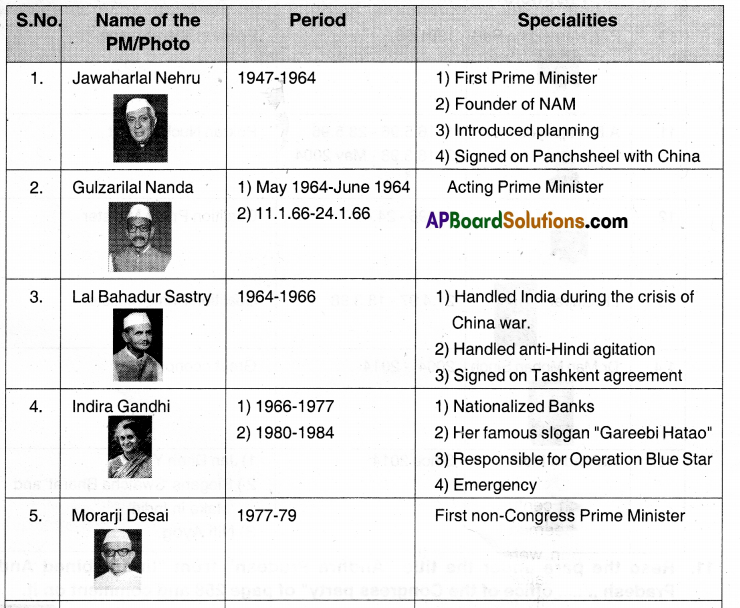
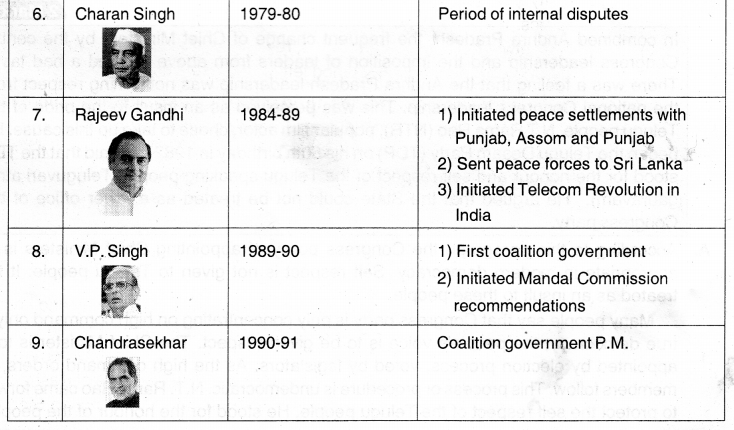
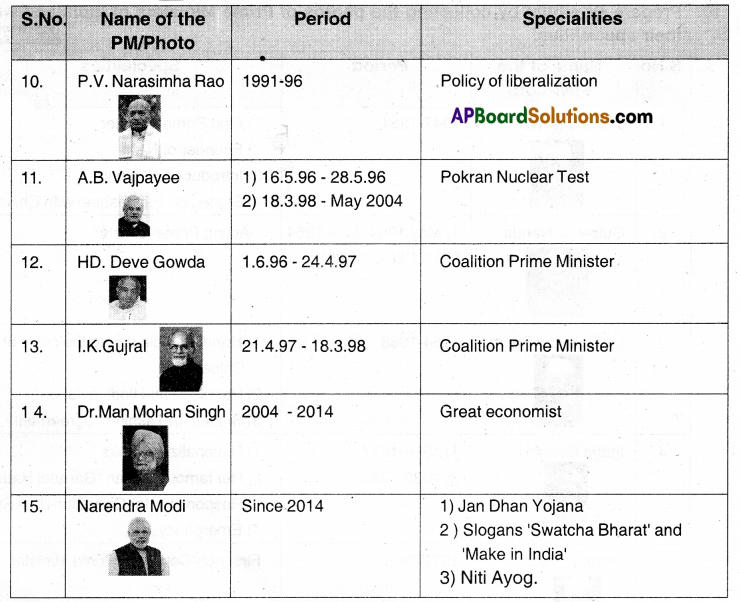
![]()
![]()
![]()
